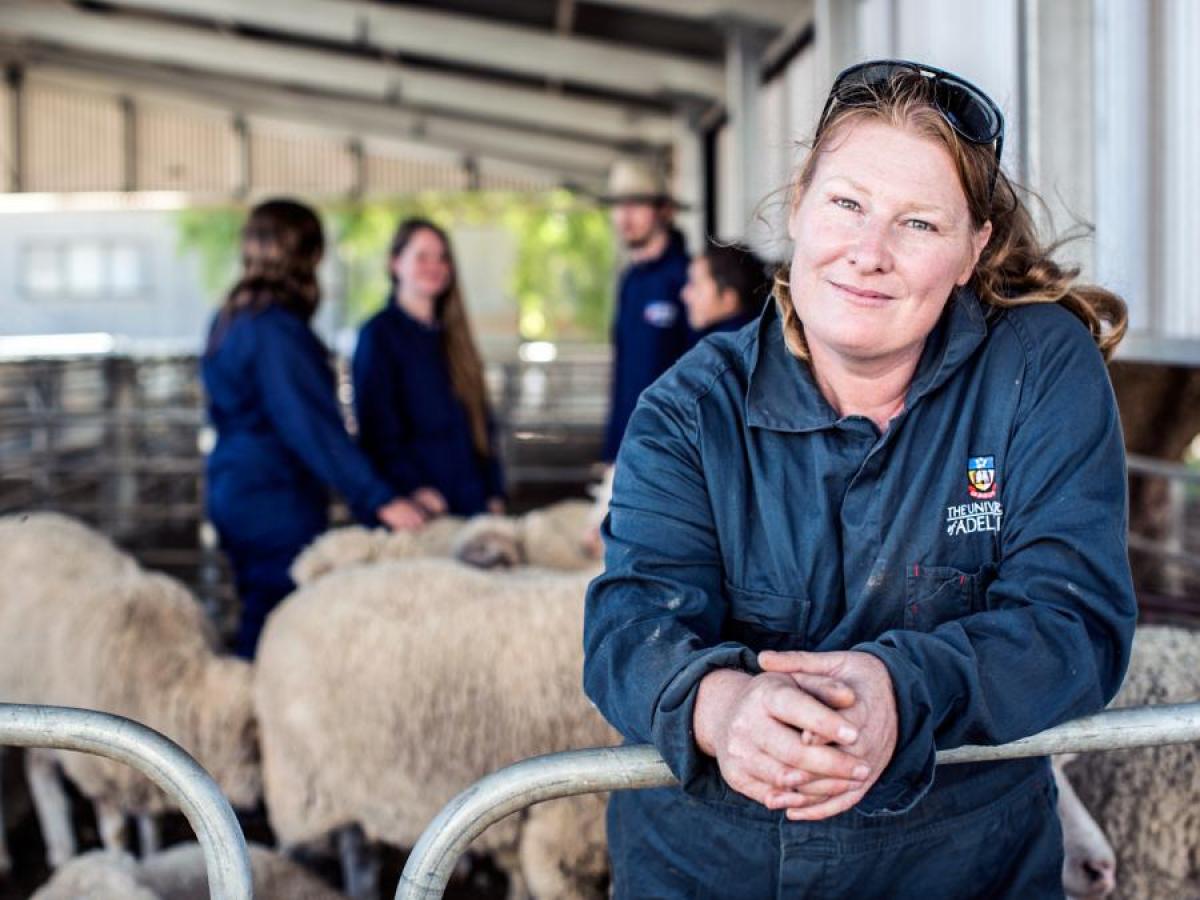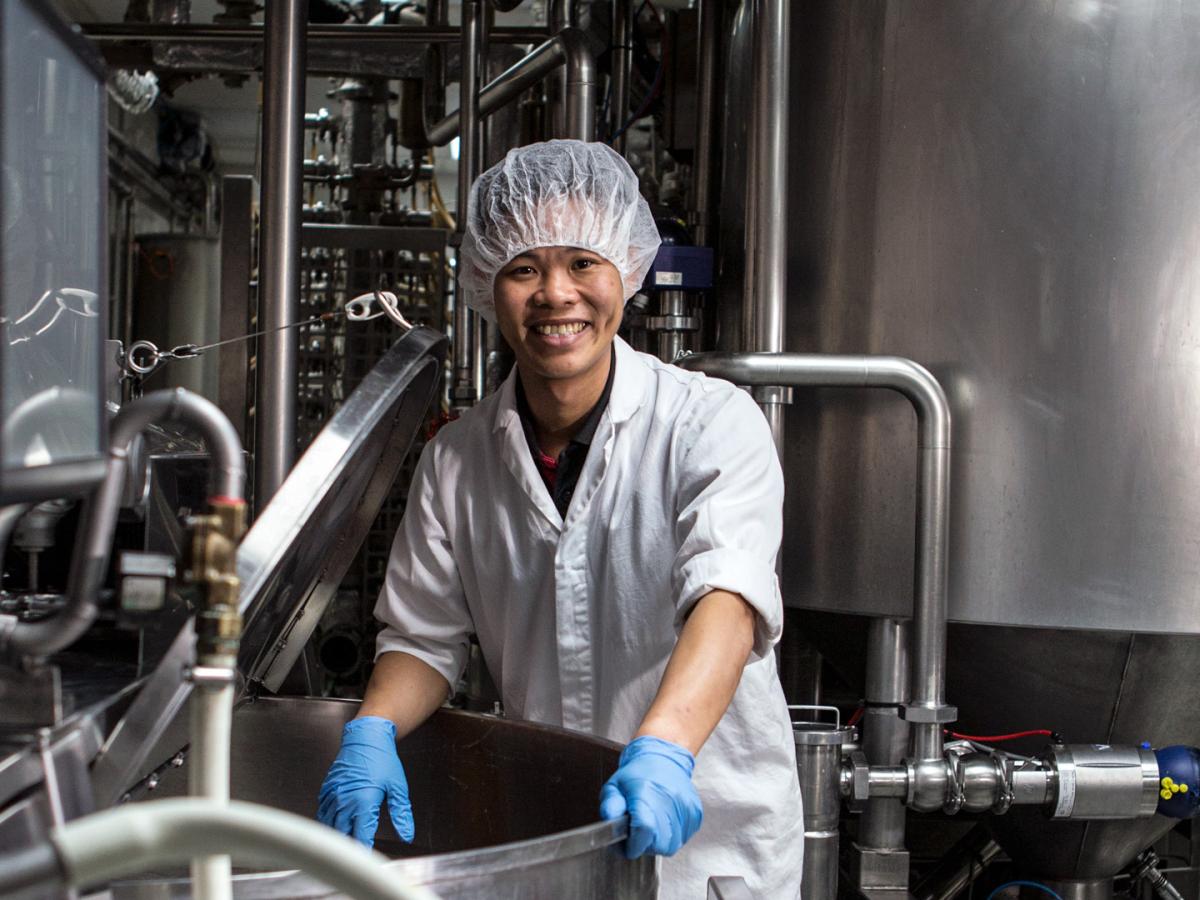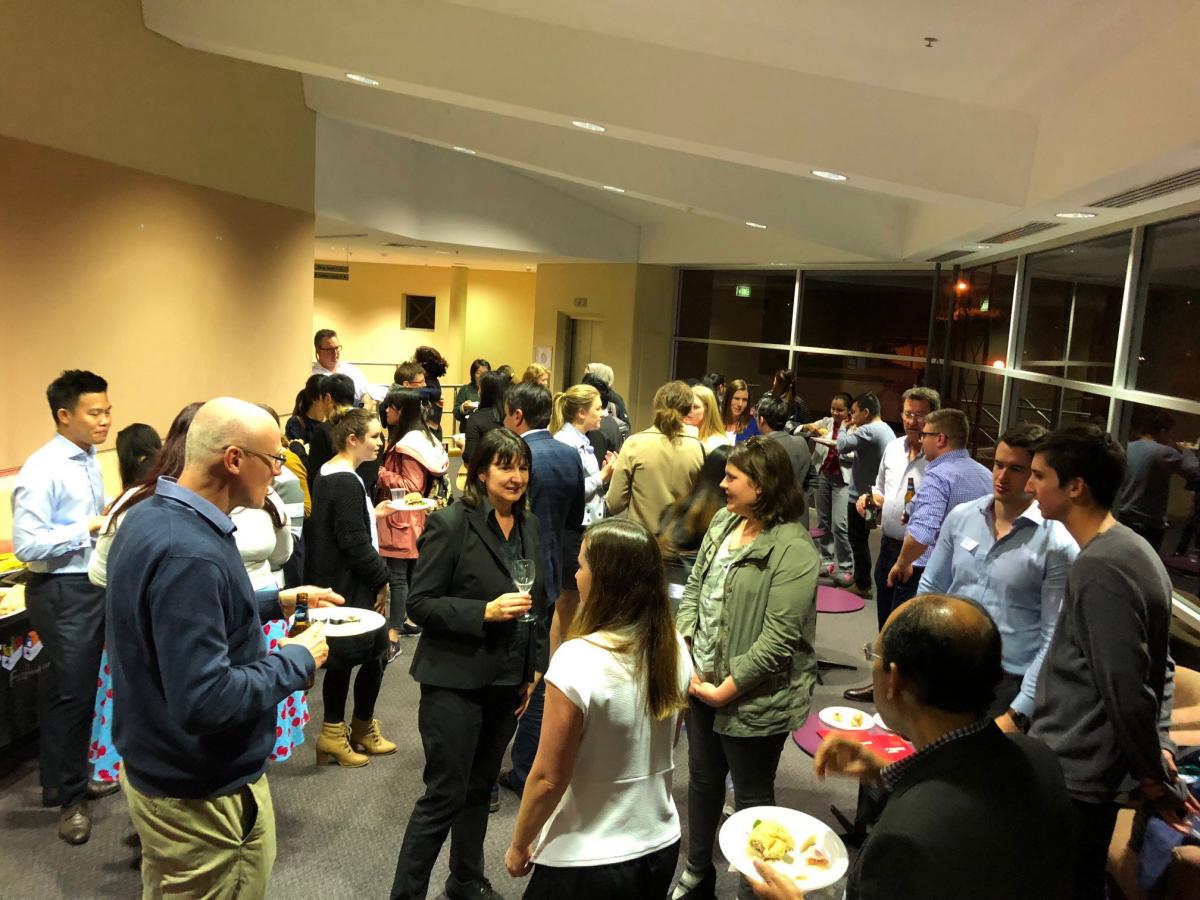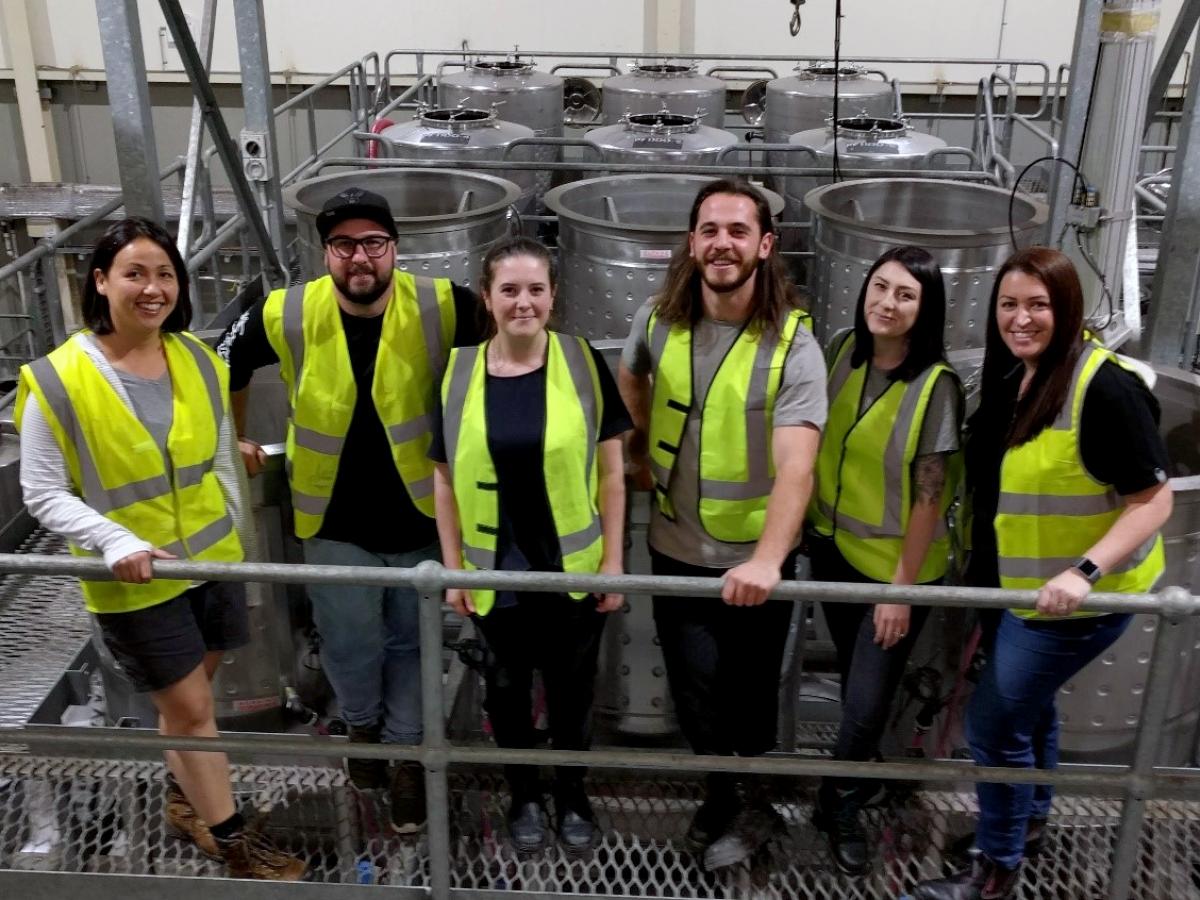Internships and Industry Placements
All of our agriculture, food and wine degrees include internships and work placements so you can build first-hand experience in a range of industry settings.
Become one of our job-ready graduates. You will become confident in how your academic knowledge may be applied in a practical context.
Agriculture is an incredibly broad and diverse sector which offers multiple career opportunities and good job prospects for passionate young people. Interests as wide ranging as primary production, food and nutrition, biology, the environment, rural banking, plant science, wine, communications, consumer and sensory research, supply chain logistics, government policy, global economics and many more are covered by agriculture. Student internships may cover any related areas.
Degrees with internships and placements

Students are required to complete at least 450 hours of internship experience across the duration of their Bachelor of Agricultural Sciences. Students must have at least two different experiences for a minimum of 3 weeks in any particular area.
Areas of work experience can include: agribusiness, agricultural research, agricultural production (including farm experience) and related industries such as rural communication, food processing, veterinary, livestock, wildlife and natural resource management.
We want to be as flexible as possible in the delivery of this program to fit in with the needs of both the employers and interns. So it is possible to take internships either as block periods during non-teaching periods; or day-a-week during semester fitting in around scheduled courses; or as weekend work.
Whether the internships are paid or unpaid will be an arrangement between the employer and the student. We encourage companies to undertake a formal interview with potential interns as a normal part of the process, but this is not essential. If the internship is an unpaid placement the students are covered by the university’s ‘Student Work Experience or Community Placement’ insurance policy. If it is a paid placement, then the student will be covered by the employer’s policy.
These internships are an important link in the transition between a student’s formal education and being prepared to work in a professional capacity. We are inviting employers to participate in this program by accepting to be placed on a registry of potential intern placements.Professor Amanda Able | Professor of Plant Science
Our Bachelor of Food and Nutrition Science program gives you 120 hours of practical industry experience. We provide you with an opportunity to put into practice some of the skills and knowledge gained throughout your degree

The practical experience and industry tours within my degree helped prepare me for my General Manager role at Mexex. Ethan Tan - Bachelor of Food and Nutrition Science
You can choose between industry and research placement options in food science or nutrition and health organisations.
Placement locations
Example host organisations include:
|
|
Career workshops

We also boost your career readiness through workshops run by the University of Adelaide Career Services. Industry tours and guest speakers and an annual career evening are also integrated into the program.
Following a successful 2018 event, a Career Information Evening for Bachelor of Food and Nutrition Science students is planned for September 2019.
The evening will include presentations from food and nutrition Science graduates showcasing different career outcomes, talks from industry representatives, and networking opportunities.
Our viticulture and oenology program provides you with industry experience during your third year of studies.
You will have the opportunity to experience, observe and acquire an understanding of the major unit processes involved in winemaking and viticulture.
Completed during vintage, you will gain firsthand experience into the production environments of the wine industry. The course will enable you to gain a working understanding of a winery and vineyard and their management systems and structures.
- Winery focused experience: grape receival and weighbridge; grape and juice processing; fermentation and post fermentation operations, cellar management and quality control procedures.
- Vineyard focused experience: soil, irrigation, pests & diseases, canopy management, pruning, harvest and vine monitoring.
Industry scholarships
Each year within the School of Agriculture, Food and Wine several scholarships provide vintage experiences at top wineries.
These scholarships are sponsored by industry groups and provide financial support and placement positions for the coming vintage.
Motivated and outstanding Bachelor of Viticulture and Oenology students are awarded the scholarships based on both academic merit and also performance in an interview.

Being awarded a winemaking scholarship in a region that I’m passionate about is an exciting way to start my career as a winemaker.Imogen McNamara
Our 2018 scholarship winners
- Lauren Gligora: the Brokenwood Wines Pty. Ltd. Prize. Lauren will be spending 2019 vintage in the Hunter Valley as part of her prize.
- Imogen McNamara: the Elderton Wine Making Excellence Scholarship which provides financial support of $3000 plus the opportunity to undertake a vintage position at Elderton winery in the Barossa.
- Rhys Fitzgerald and Roman Davas-Fahey: respectively awarded the Jacobs Creek Viticulture & Winemaking Scholarships. Both will undertake vintage 2019 at Jacobs Creek sites in the Barossa.
- Tarita Shiraishi Furlan: the ROCA Award of Merit, a scholarship awarded on academic merit, financial need and responses relating to a question relating to Viticulture as a career priority. The prize consists of $5000 each year for two years to support the student in their studies.
- Hannah Medlock: the Treasury Estates Wine Prize for Excellence in Winemaking which is given to the student showing the greatest aptitude in the course “Winemaking at Vintage”. Hannah receives $2000 to support her further study and also a place at Wolf Blass Winery in the Barossa during vintage.
